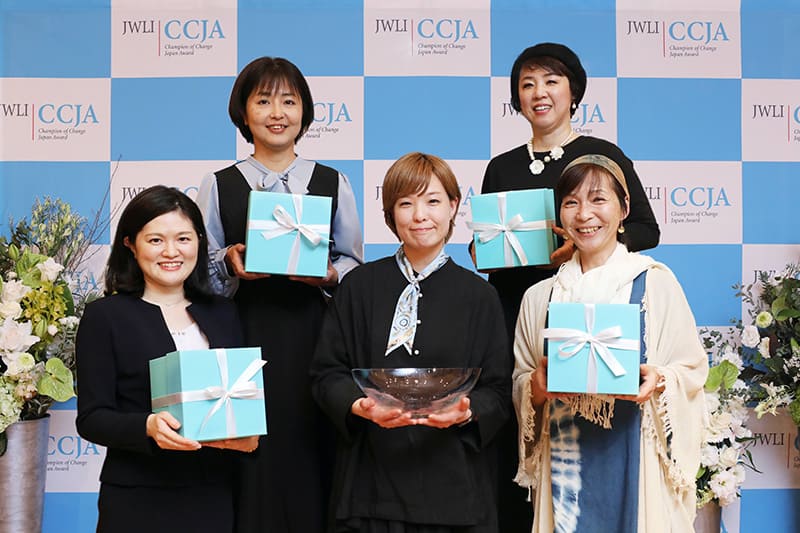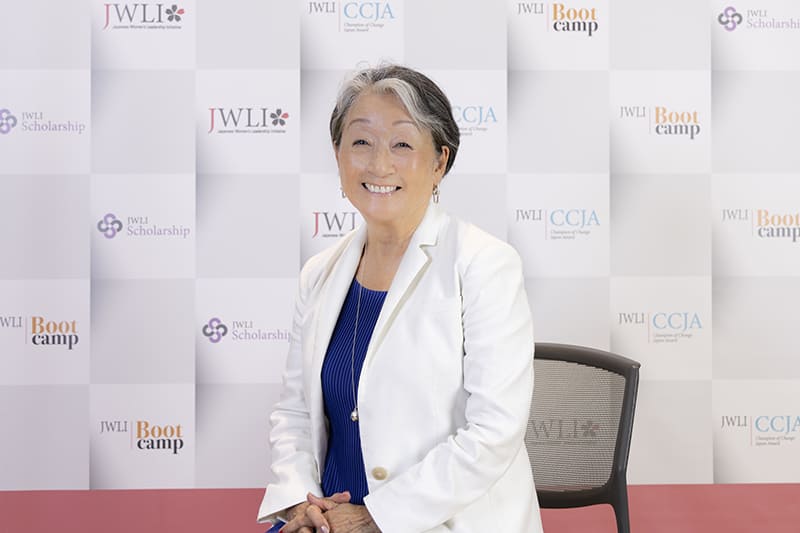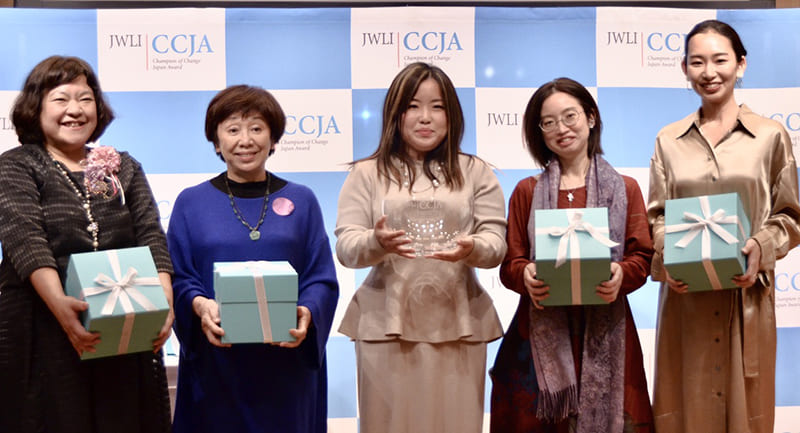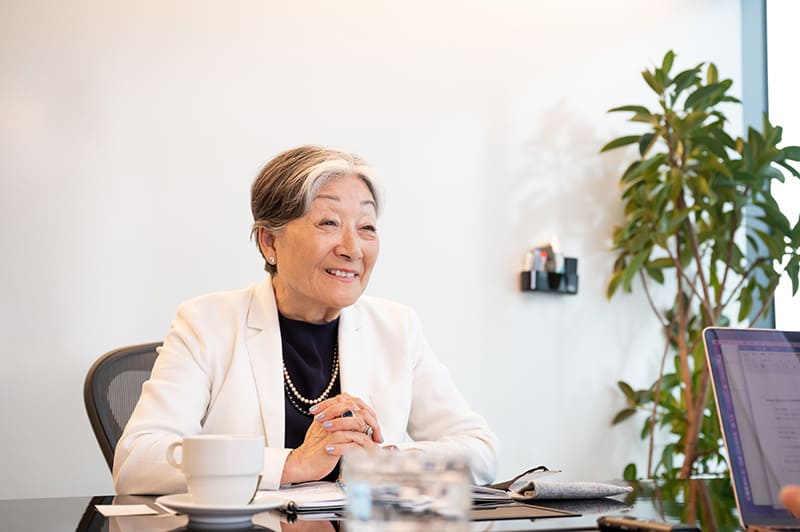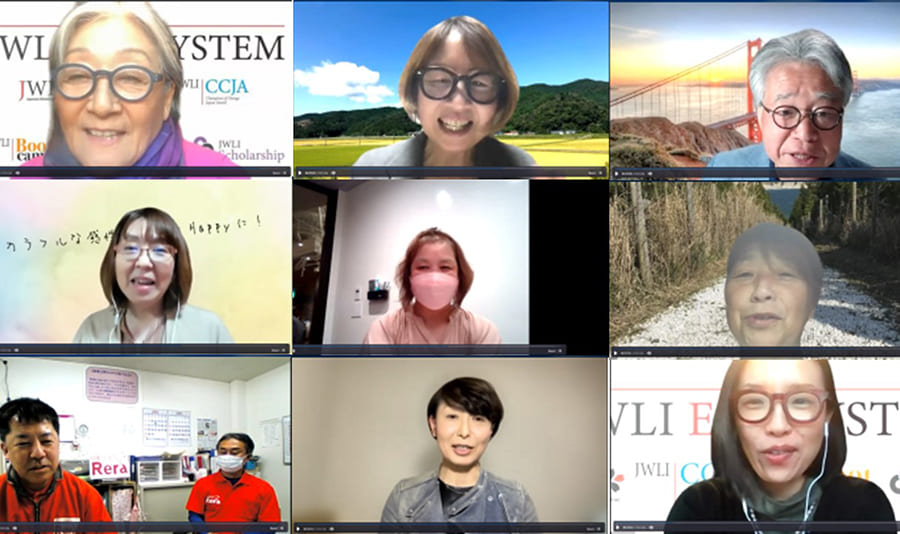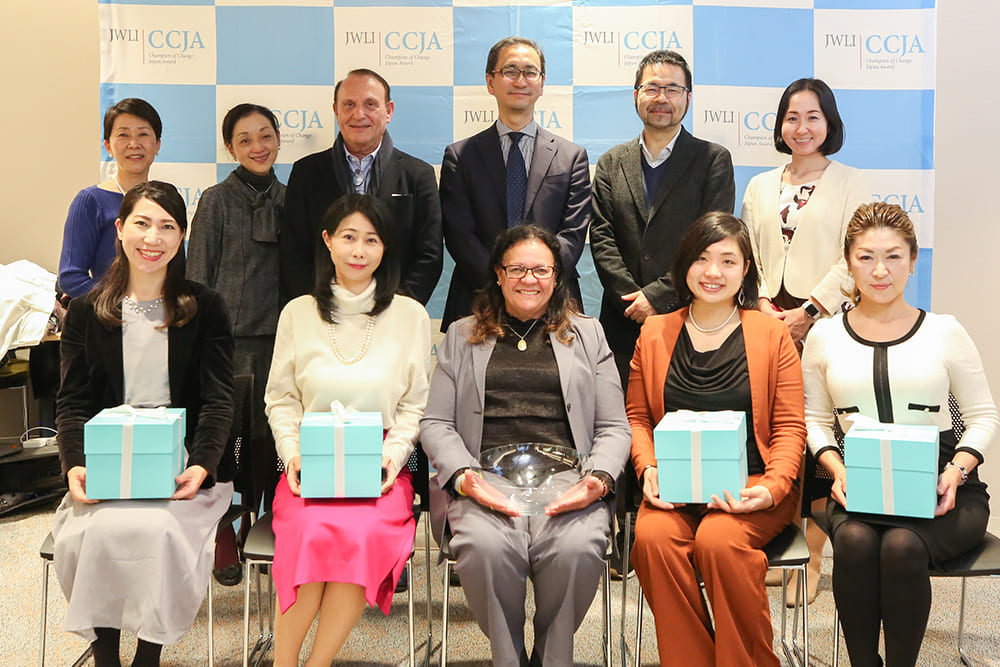January 14, 2022
CCJA winner founded company to support deaf children
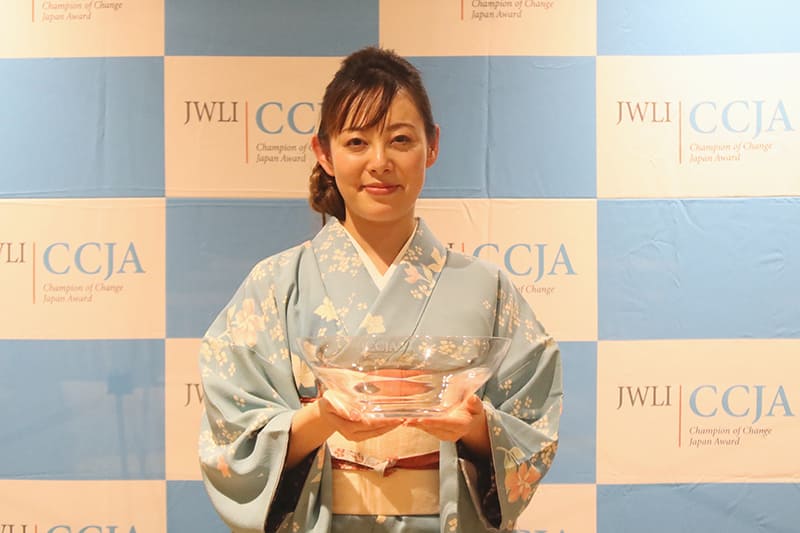
The award ceremony for the fifth Champion of Change Japan Award, CCJA 2021, was held in Tokyo and streamed live over YouTube on Dec. 10. A record 203 women had been nominated, and the ceremony showcased the seven finalists’ accomplishments. The grand prize was ¥1 million and a commemorative crystal bowl donated by Tiffany & Co. The runners-up won ¥250,000, and all received a certificate of recognition.
The award was begun in 2017 by the Fish Family Foundation. It is one part of an ecosystem that aims to highlight the efforts of women leading social change in Japan. Other initiatives include the Japanese Women’s Leadership Initiative (JWLI) held in Boston, as well as the JWLI Bootcamp held in Japan. CCJA is partnered with Tiffany, Dow Japan and The Japan Times, with a representative from each present.
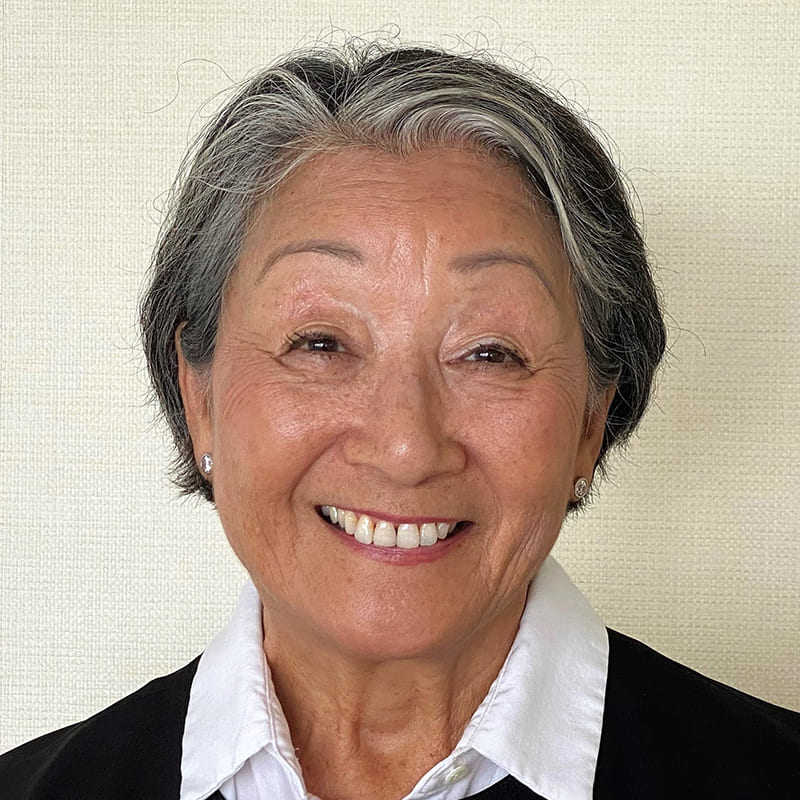
The founder and visionary behind CCJA, Atsuko Toko Fish, is based in Boston. Herself a recipient of the Champion of Change award from U.S. President Barack Obama in 2013, she decided to carry the torch to her country of birth and spearheaded CCJA. Fish attended the award ceremony from Boston via live video. She offered warm words of encouragement to all of the female leaders on the stage in Tokyo, stating her firm belief that the actions of the CCJA leaders will inspire future generations of women in Japan.
The event
The ceremony was opened by Japan Fundraising Association CEO Masataka Uo, journalist Noriko Akiyama and Rie Sawanobori of Dow Japan. Both Akiyama and Sawanobori count themselves among the fellows of the JWLI program, while Uo has been involved with CCJA as a judge since 2019.
In their opening remarks, all three ebulliently proclaimed how meritorious all of the finalists were. “It’s not that we are rank-ordering the finalists from top to bottom,” Sawanobori explained. “All of their initiatives are meaningful, and they are making positive social impacts.” Rather, when choosing the recipient of the top award, the judges considered deeply the relative need and impact that the award would have on that particular finalist’s initiative going forward. “We carefully considered who needed that extra push to really take flight,” Sawanobori said. Afterward, Uo exclaimed, “Honestly, we would love to be able to give the first prize to everyone.” He also revealed that five finalists have traditionally been selected from a 25-person short list, “but this year, we were so impressed with everyone that we decided we had to go with seven.”
Partners of CCJA also took the digital stage and sang heartfelt praises of the women. Anisa Kamadoli Costa of Tiffany said: “Congratulations to all the nominees, and in particular the finalists. … You are heroes in your communities and heroes in Japanese society.”
The finalists were brought onto the stage in Tokyo one after another, introduced and given an opportunity to say a few words about their activities for the benefit of the audience. In previous years, Fish was physically present and gave each of the finalists a hug. However, because the event was livestreamed this time, she gave virtual high-fives instead.
The winner: Yukako Makino
The CCJA 2021 grand prize went to Yukako Makino for her inspiring and influential work in special needs education for deaf children.
Born with severe hearing loss, Makino had to learn how to lip-read to understand others’ speech. Despite her condition and the countless obstacles she faced in Japanese society, she became employed at Sony Corp. for seven years as a member of human resources. In 2018, she left the company to be a full-time mother and take care of her eldest daughter, who was born with an extremely rare bone disease. “I was made aware of how few treatment options there are,” she said, “but I was also curious how far education and care for deaf people had come. I was shocked to discover that almost nothing had changed for the better in 30 years.” As a model of success herself, Makino started a company in 2017, called Defsapo, to support deaf children and give them hope for a bright future. It is her company’s core mission to make these children realize that if they educate themselves and have the right support, they too can enter into a career and live happy, fulfilled lives. The company’s activities include communication and language courses, consultation sessions for families, accessibility workshops for companies and a host of others.
After she was presented with the grand prize, several of the judges took the stage to explain the reason for choosing her among so many deserving recipients. “As someone with hearing loss yourself and the mother of a child with a rare disease, you personally understand how far Japan still has to go in supporting people with disabilities,” one of them said. Moreover, the judges considered her accomplishments to be especially inspirational given that she was able to become the CEO of her own company despite facing so many obstacles. Another judge commented, “You are an example of what is possible and what an inclusive society looks like up close.”
Not only did Makino learn how to shine brightly herself, but she has worked tirelessly to light the way for others and make the world a better place for everyone.
Fish offered the closing remarks. With an infectious smile on her face, she explained how impressive everyone was, and how their actions would lead to a better, more inclusive tomorrow. “Makino-san’s actions in particular are representative of JWLI’s core belief of being ‘open, positive and inclusive.’
Now, I expect that all of you will continue to expand your activities as members of the JWLI ecosystem and make Japan an even better place. Congratulations and thank you to all of you.”
To the future
Three of the judges remained behind at the end of the ceremony to offer their final thoughts on CCJA and what they envision going forward.
Uo clearly articulated one of the central motives of the entire CCJA initiative. By showcasing the achievements of remarkable women in Japan, CCJA hopes to sow the seeds of positive action by women all over the country. “What we really want to accomplish is for women and girls in Japan who are seeing this to feel encouraged and motivated to take action, even if it is small,” Uo said.
A good sign is that every year more and more nominees have been coming forward from diverse regions around Japan. The organizers of CCJA are excited to see what types of women will be nominated in the coming year as well.
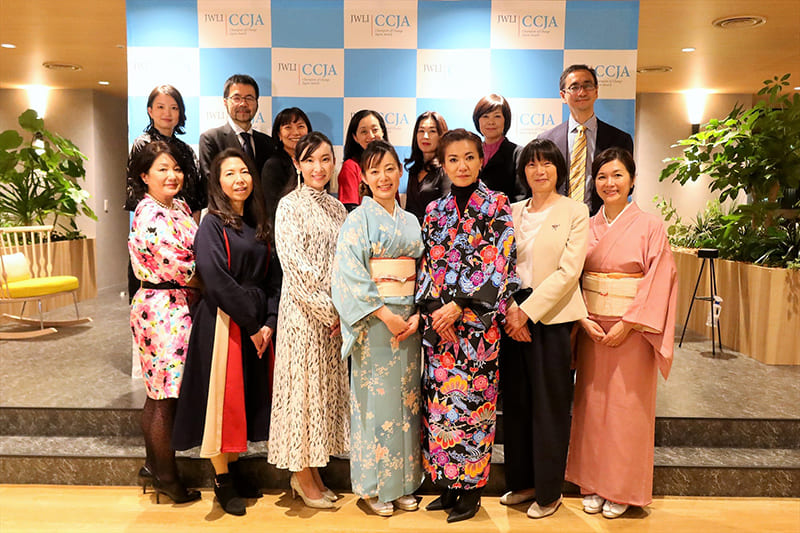
Finalists: 6 extraordinary women
Kaoru Nakayama
NPO ParaCan
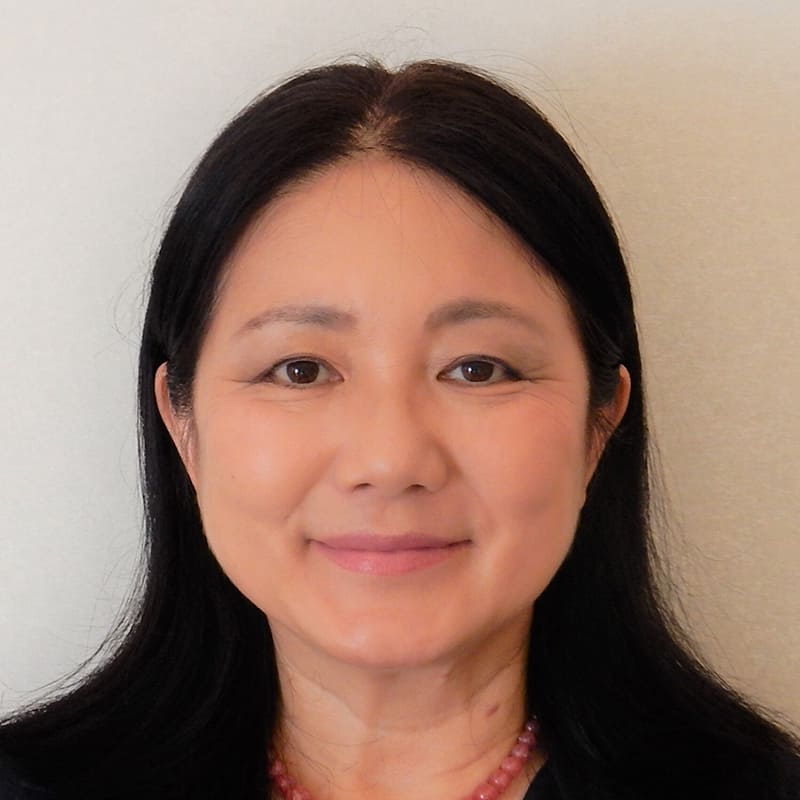
After graduating from Widener University in the United States in 1991, Kaoru Nakayama began working in New York. Later, in 1996, she had the chance to watch the Atlanta Paralympics. She felt a stark contrast between the U.S. and Japan in the degree to which disabled people could take part in society. Overwhelmed with a desire to make positive changes in Japan for children with disabilities, she founded the nonprofit organization ParaCan. Its mission is to instill children with self-affirmation and increased confidence, and encourage inclusive education throughout Japan for youth sports. As a result of the organization’s efforts, thousands of children with or without disabilities have been given hope, and four have even participated in the Paralympics.
Kaori Nakajima
NPO Piccolare
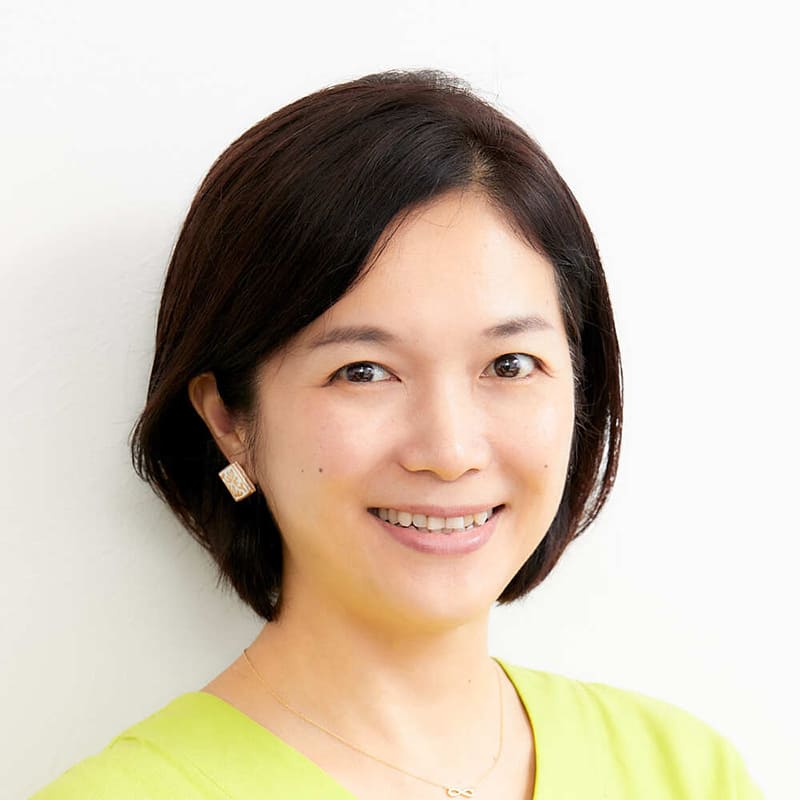
Kaori Nakajima earned a master’s degree in biology from Tokyo Metropolitan University. She returned there to become a midwife after having her second child. She found a great deal of meaning in helping women go through all the stages of pregnancy and then beyond into child-rearing, but wanted to do more. Having come face to face with horrifying episodes of babies dying on the day they are born, she began a nonprofit organization, Piccolare. Her group runs a pregnancy consultation desk called Ninshin SOS Tokyo to support with respect and without judgment women and girls who are in trouble of facing unintended pregnancy. Piccolare helps women cope with the physical, mental and social challenges of pregnancy and aims to instill them with confidence.
Itsuki Dohi
Transgender Student Exchange Meeting
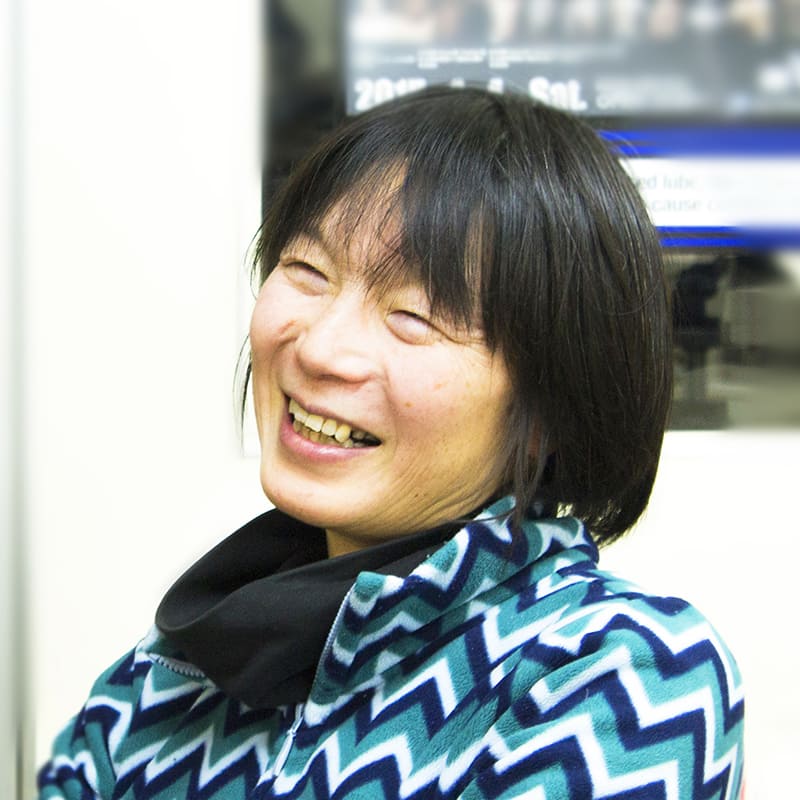
A high school teacher in Kyoto since 1985, Itsuki Dohi has never stopped progressing with her own education as well. Dohi graduated with a master’s degree in education from the Kyoto University of Education in 2015, and followed that up by completing a doctorate in social science from Osaka Prefecture University, her research focusing on transgender issues in educational contexts. It was in 1997 that Dohi first realized that she was a trans woman, and she began transitioning in 2000. As an educator, she wanted to help pave the way for more inclusive school life by creating a space for transgender students in the country to interact with others like themselves. She has been running a transgender student meetup group since 2006, which has been a life-changing force for more than 200 trans youths in Japan.
Kaai Akimoto
Blanket Inc. & Kaigo Leaders
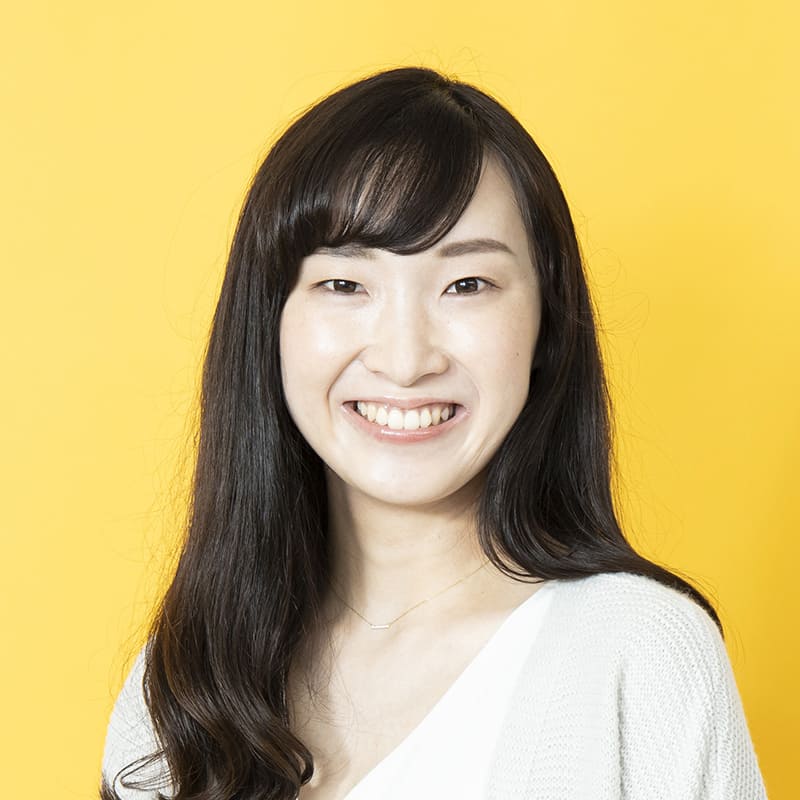
During her time as a university student, Kaai Akimoto worked part time in caregiving for the elderly. This experience opened her eyes to the reality of an understaffed industry that was confronted with the problem of an aging society: Life doesn’t necessarily end happily. Since 2013, she has been passionately working on this critical social issue through the vehicle of her company, Blanket Inc. It is engaged in several projects that support the caregiving industry with specialized training and know-how, as well as others that raise awareness about the issues to the wider public. One of its main drives is Kaigo Leaders, a community that it runs to elevate the skills and talent of young people who are interested in entering the field of caregiving.
Rie Gorgeous
Society for Energizing Women
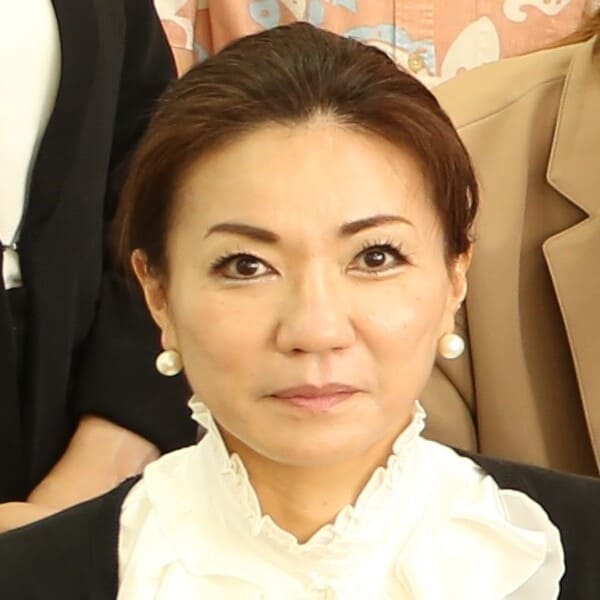
Rie Gorgeous was born in Naha, Okinawa. After graduating from a vocational school for secretary work and spending three years abroad in Australia, she embarked on a career at a computer company in Okinawa. She rose through the ranks of the male-dominated firm to become a director soon after, and in her new role, she instituted changes to put more value on women. Herself a single mother of two, Gorgeous understood firsthand the unique trials that women face in Japanese society. Now she has been running a volunteer group that organizes food drives and charity events for Okinawan women in impoverished households. Its goal is to put a smile on the faces of as many women as possible, and let them know that someone cares.
Yasuyo Yamamoto
NPO Olive House
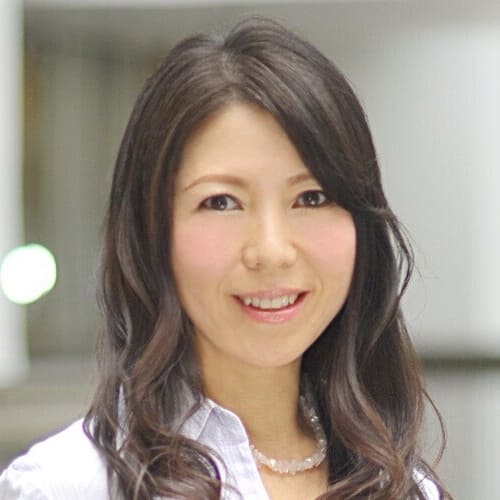
Born in Kyoto, Yasuyo Yamamoto became a singer at the age of 16. In her 30s, she became deeply interested in psychology after learning about a friend’s phobia. As a result, she began studying psychology and started her own private psychological counseling business while raising her daughter as a single mother. In 2017, she began her NPO, called Olive House, which is based in Okayama. Olive House operates as a shelter and counseling center for victims of domestic abuse, primarily women and children. Recently, Yamamoto has also returned to studying psychology and is enrolled in a distance-learning program through Kyoto Tachibana University. She hopes that higher education will help her organization provide even better care for users.

